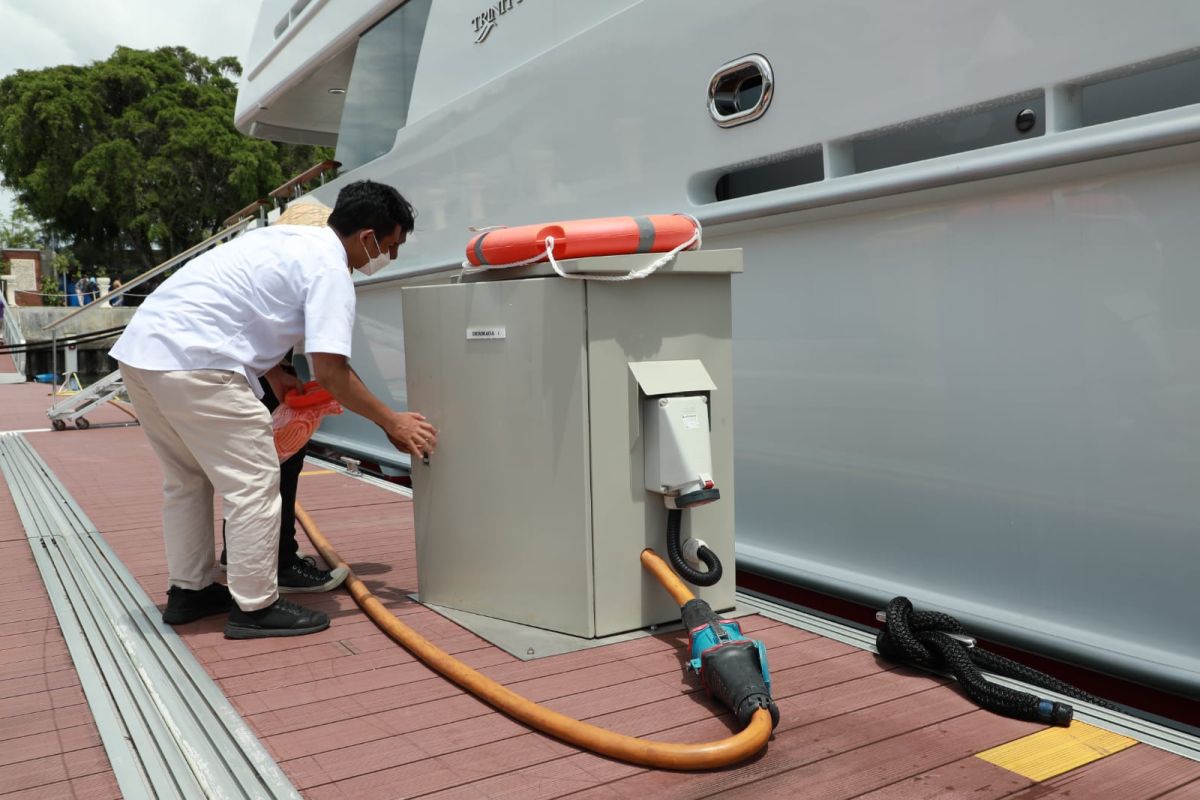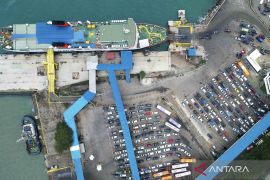We believe that OPS is more cost-efficient for ships and will be very beneficial for environmental protectionJakarta (ANTARA) - The Directorate General of Sea Transportation of the Transportation Ministry is committed to implementing the provision of Onshore Power Supply (OPS) for ships anchored in ports across Indonesia.
"The implementation of OPS is one of the steps taken by Indonesia in terms of ship decarbonization," the ministry's Director General of Sea Transportation, Arif Toha, noted in a statement received here, Tuesday.
He remarked that OPS has also become one of the climate change mitigation actions taken by his side to reduce Greenhouse Gases (GHG) in the shipping sector that has reported its GHG emission reduction achievements to the Ministry of Environment and Forestry since 2019.
Toha witnessed the signing of a memorandum of understanding between Subholding PT Pelindo Jasa Maritim and DPP INSA regarding the implementation of OPS at Indonesian ports at the State-Owned Enterprises (SOEs) International Conference in Nusa Dua, Bali, Tuesday.
The OPS will be used to replace the ship's energy source that earlier used oil-based ship engines to become a source of electrical energy, he remarked.
Furthermore, the Ministry of Transportation, as a regulator, supports this action by making the OPS program as one of the main policies.
"We believe that OPS is more cost-efficient for ships and will be very beneficial for environmental protection," Toha affirmed.
He further noted that this referred to the concept of sustainable port development or green port.
Minister of Transportation Regulation Number PM 50 of 2021 concerning the Operation of Sea Ports specifically states that to ensure and maintain environmental sustainability at the Port, the Port Authority, Harbormaster and Port Authority (KSOP), or the Port Operator Unit (UPP) must provide facilities to prevent pollution and guarantee environmentally friendly ports.
He noted that this implementation aligns with the initial strategy of the International Maritime Organization (IMO Initial GHG Strategy) on reducing GHG Emissions from the shipping sector, specifically reducing the total annual GHG emissions from international shipping by at least 50 percent in 2050 as compared to 2008 and reduce the carbon intensity of international shipping to lower CO2 emissions by about 40 percent by 2030 and pursue efforts towards 70 percent by 2050.
In addition, the OPS facility will help savings and efficiencies in energy consumption and fuel costs incurred by ships when docking at the port, Toha stated.
Moreover, OPS facilities play a major role in reducing ship exhaust emissions by 75 percent to 93 percent.
"This is also in line with the Indonesian government's commitment to reduce Greenhouse Gas Emissions by 29 percent by 2030 to the United Nations through the Nationally Determined Contribution (NDC) document," he added.
Related news: Indonesia ready for decarbonization measures in marine activities
Related news: Ministry prioritizes environmentally friendly port management
Related news: Ministry seeks to strengthen synergy to optimize shipping safety
Translator: Adimas Raditya Fakhy P, Resinta S
Editor: Sri Haryati
Copyright © ANTARA 2022












